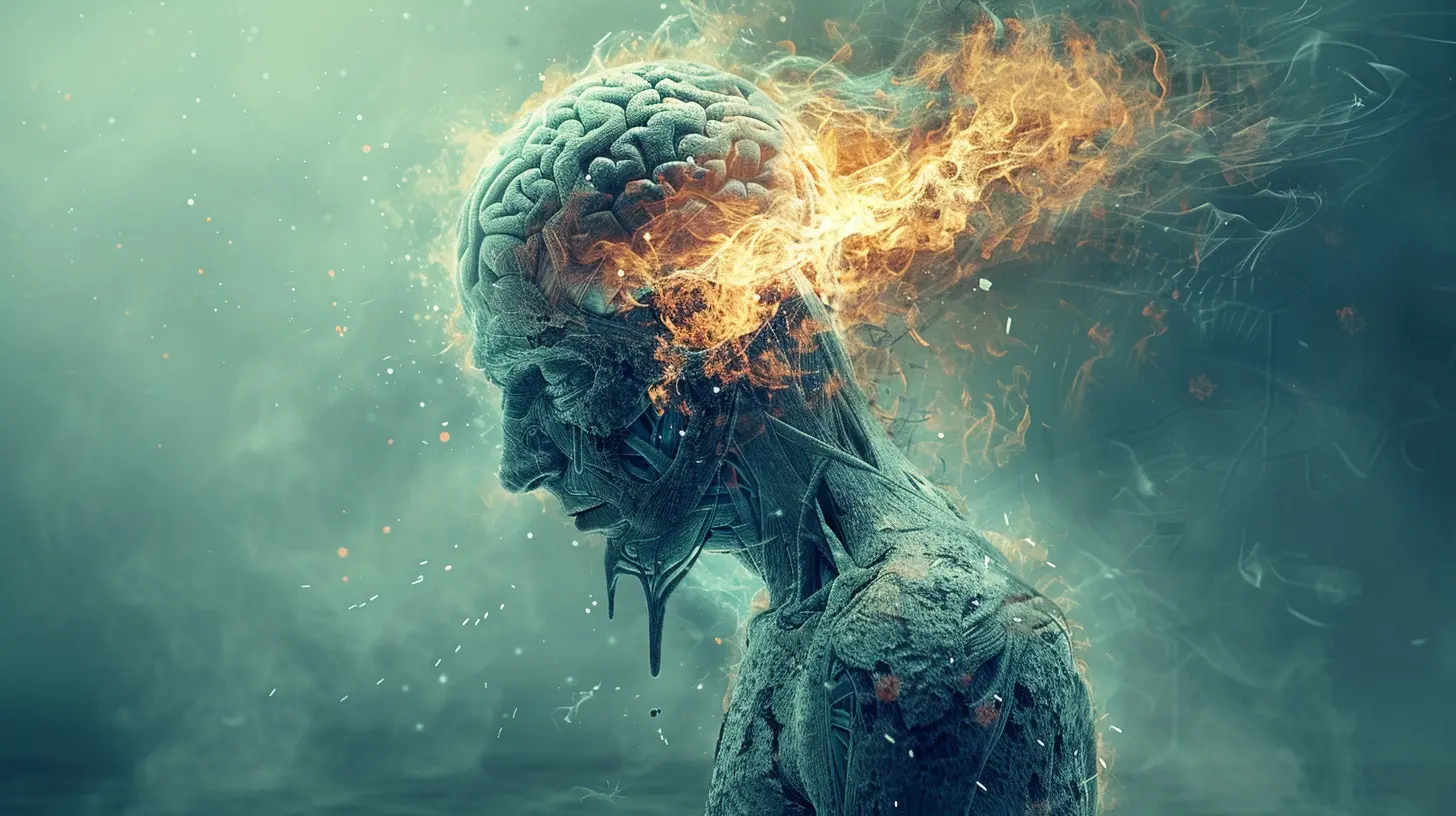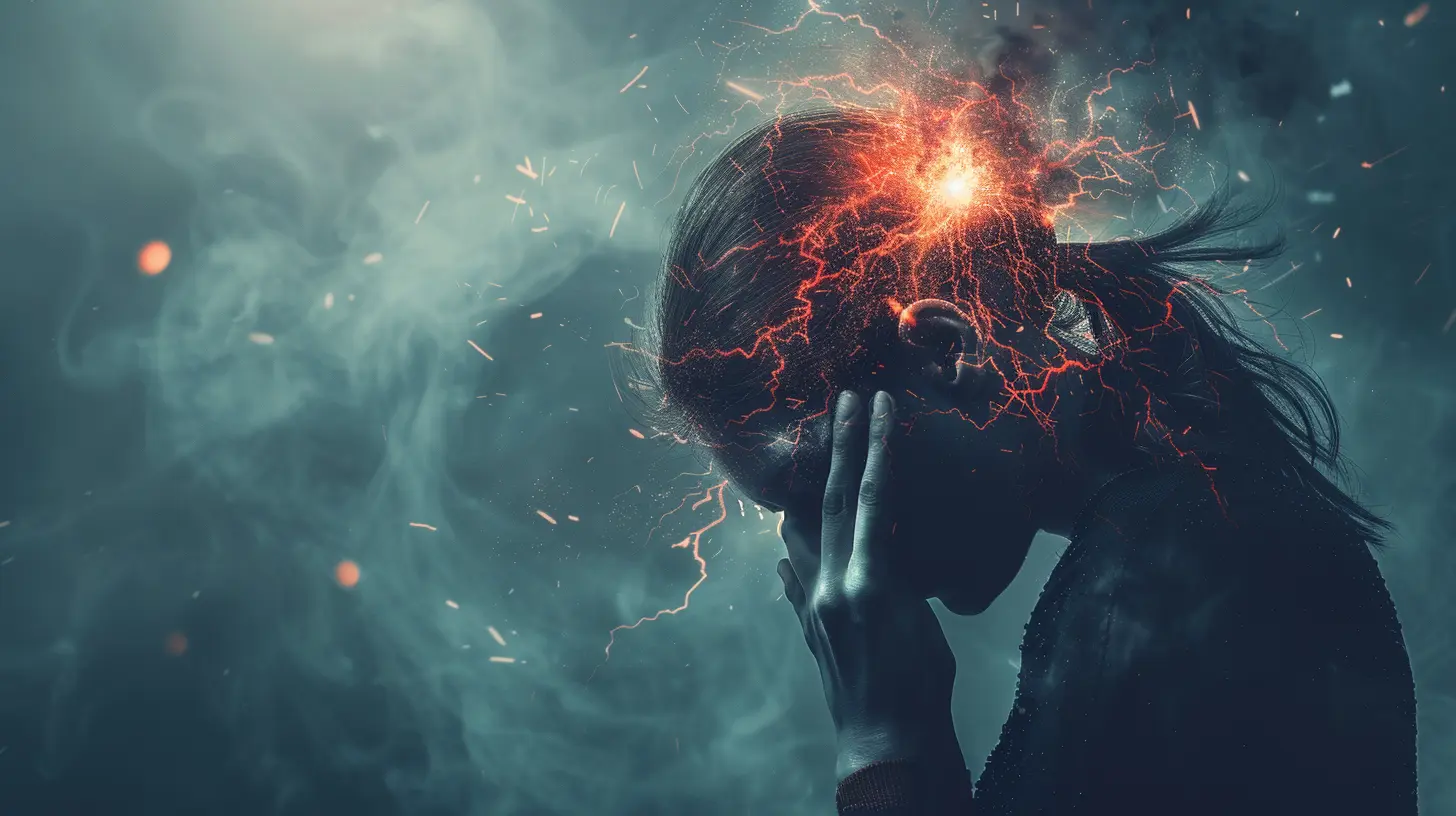How Trauma Affects the Brain and Behavior
24 May 2025
Trauma is more than just a bad experience—it leaves a lasting imprint on the brain and changes the way we think, feel, and interact with the world. Ever wondered why certain memories trigger intense emotions or why some people develop anxiety, depression, or even struggle with relationships after a traumatic event? Well, that’s because trauma rewires the brain, often without us even realizing it.
In this article, we’ll break down how trauma affects both the brain and behavior in a way that's easy to understand. Let’s dive in!

What Happens to the Brain During Trauma?
When we go through a traumatic experience—whether it’s a car accident, childhood neglect, or a toxic relationship—our brain goes into survival mode. It’s like an alarm system that signals danger and prepares us to fight, flee, or freeze.But here’s the catch: trauma can cause this alarm system to stay on high alert, even when the danger is long gone. This can impact three major parts of the brain:
1. The Amygdala: The Fear Center
The amygdala is like the brain’s personal security system—it detects threats and triggers emotional responses. After trauma, the amygdala becomes overactive, making us hypersensitive to potential danger.Ever feel jumpy when you hear a loud noise? Or get a flood of anxiety in situations that remind you of a bad experience? That’s your amygdala working overtime. It’s always scanning for threats, even when there are none.
2. The Hippocampus: The Memory Keeper
The hippocampus is responsible for processing and storing memories. Trauma can shrink this part of the brain, leading to memory problems and difficulty distinguishing between the past and the present.That’s why people with PTSD (Post-Traumatic Stress Disorder) often experience flashbacks. Their brain struggles to separate a past traumatic event from the present moment, making it feel like they’re reliving the experience all over again.
3. The Prefrontal Cortex: The Rational Thinker
The prefrontal cortex helps us make decisions, regulate emotions, and control impulsive behavior. But trauma weakens this area, making it harder to think logically and stay calm under stress.Ever lashed out in anger or felt completely overwhelmed by emotions? That’s because trauma can dull the part of the brain responsible for keeping us grounded. Instead of thinking rationally, we react impulsively.

How Trauma Affects Behavior
Now that we understand how trauma impacts the brain, let’s talk about how it translates into everyday behavior.1. Hypervigilance: Always on Edge
Because the amygdala is in overdrive, a traumatized brain is constantly scanning for danger—even when none exists. This can manifest as hypervigilance, where a person is easily startled, overly suspicious, or struggles to relax.Imagine walking through life as if you're in a haunted house, always expecting something bad to happen. That’s what hypervigilance feels like.
2. Emotional Dysregulation: Big Emotions, Little Control
Since trauma weakens the prefrontal cortex, emotions can feel overwhelming. Many trauma survivors struggle with mood swings, sudden outbursts, or extreme reactions to minor inconveniences.It’s like having a car with faulty brakes—once emotions start speeding up, it’s hard to slow them down.
3. Avoidance: Dodging Painful Triggers
Because trauma memories can be so painful, many people subconsciously avoid anything that reminds them of their experience. This could mean avoiding certain people, places, or even conversations about the past.For example, someone who was in a car crash might avoid driving altogether. While avoidance seems like a way to protect oneself, it can also reinforce fear and make life feel smaller.
4. Difficulty Trusting Others
Trauma often shatters a person’s sense of safety. When someone has been hurt—especially in relationships—they might struggle to trust again. This can lead to a fear of vulnerability, difficulty forming close relationships, or even pushing people away.It’s like touching a hot stove—after getting burned once, you might hesitate before reaching out again.
5. Self-Destructive Behaviors
Many trauma survivors engage in self-destructive behaviors as a way to cope with emotional pain. This could include substance abuse, reckless decisions, or even self-sabotaging relationships.Why does this happen? Because trauma can create deep emotional wounds, and sometimes people try to numb the pain in unhealthy ways.

Can the Brain Heal from Trauma?
The good news? Yes! The brain is incredibly resilient and has the ability to rewire itself—a concept known as neuroplasticity. Healing from trauma takes time, but it’s absolutely possible with the right support and strategies.1. Therapy and Counseling
Talking to a licensed therapist—especially one who specializes in trauma—can help reprocess painful experiences in a safe, supportive environment. Cognitive Behavioral Therapy (CBT) and EMDR (Eye Movement Desensitization and Reprocessing) are particularly effective for trauma.2. Mindfulness and Meditation
Practicing mindfulness can help calm an overactive amygdala and strengthen the prefrontal cortex. Meditation, deep breathing, and grounding exercises can teach the brain to respond to stress in a healthier way.3. Exercise and Movement
Physical activity isn’t just good for the body—it’s great for the brain, too! Exercise releases endorphins, reduces stress, and helps regulate emotions. Activities like yoga, running, or even dancing can be incredibly therapeutic.4. Healthy Relationships
Surrounding yourself with supportive, understanding people can help rebuild trust and restore a sense of safety. Whether it’s a trusted friend, family member, or support group, connection is a crucial part of healing.5. Self-Compassion and Patience
Healing from trauma isn’t linear—some days will be better than others. Being kind to yourself, practicing self-care, and acknowledging your progress (no matter how small) can make a world of difference.
Final Thoughts
Trauma changes the brain, but it doesn’t have to define you. Understanding how trauma affects thinking and behavior is a crucial step toward healing. If you or someone you know is struggling with trauma, know that recovery is possible. You are not broken—your brain is simply trying to protect you the best way it knows how. But with time, support, and self-care, you can regain control and build a life beyond trauma.all images in this post were generated using AI tools
Category:
PsychologyAuthor:

Gloria McVicar
Discussion
rate this article
3 comments
Nellie McConkey
Trauma and the brain are like that ex who just won’t leave—messy, complicated, and sometimes showing up at the most inconvenient times. Understanding it is key, but remember: healing is just as important as figuring out why they started texting again!
June 11, 2025 at 2:59 AM

Gloria McVicar
Absolutely! Healing from trauma is essential, and understanding its impact can guide us on the path to recovery. Thank you for your insightful comment!
Kalani Watson
This article brilliantly outlines the intricate connections between trauma, brain function, and behavior. Understanding these effects is crucial for effective treatment and support for trauma survivors.
May 31, 2025 at 3:01 AM

Gloria McVicar
Thank you for your insightful comment! I'm glad you found the connections highlighted in the article valuable for understanding trauma and its impact on treatment.
Wade Yates
This article brilliantly highlights the intricate connections between trauma, brain functioning, and behavioral changes, offering valuable insights into healing and recovery.
May 28, 2025 at 2:32 PM

Gloria McVicar
Thank you for your thoughtful comment! I'm glad you found the connections insightful.



